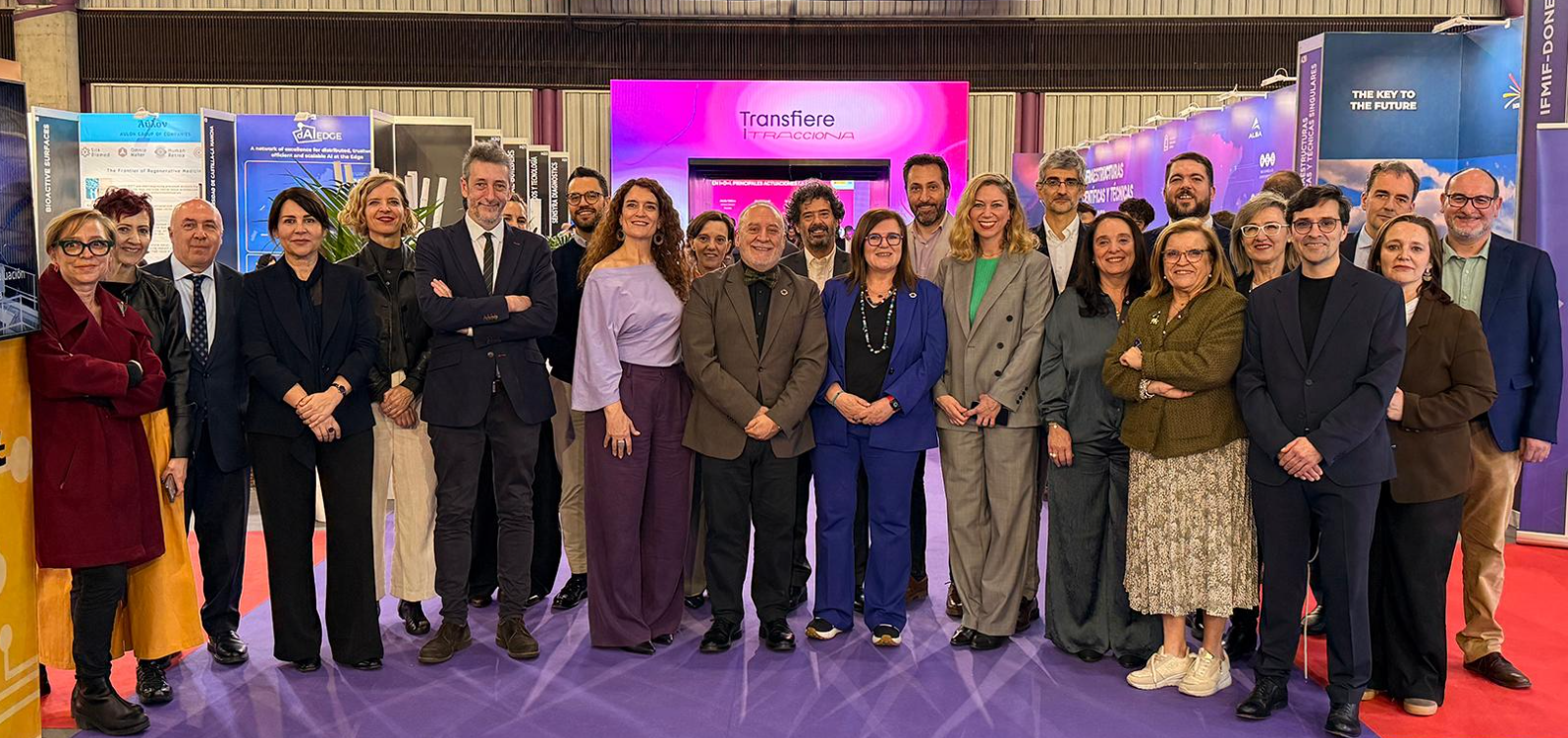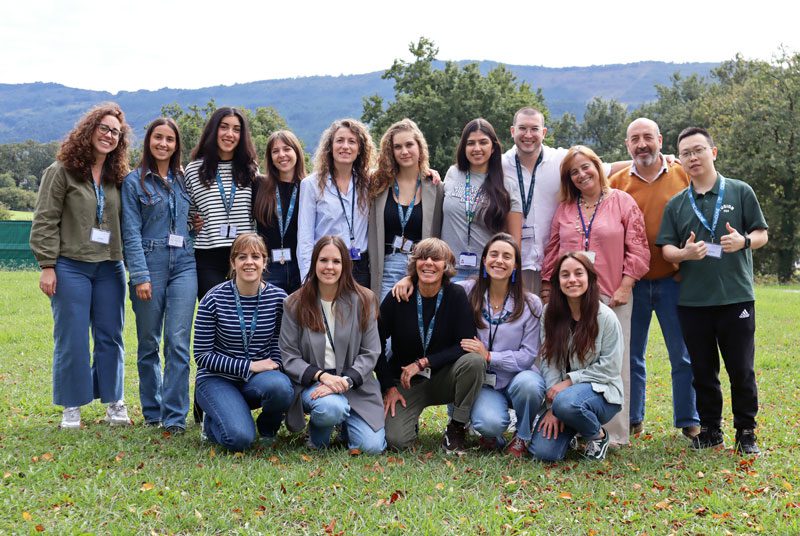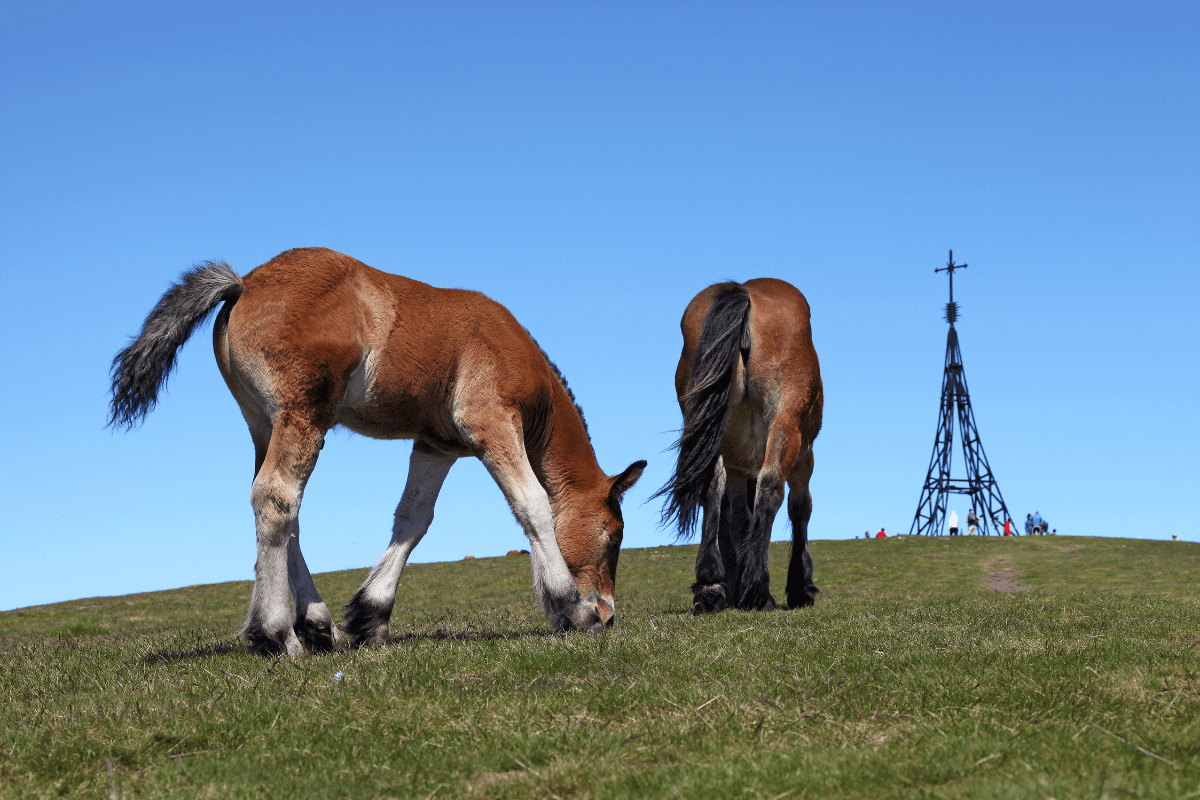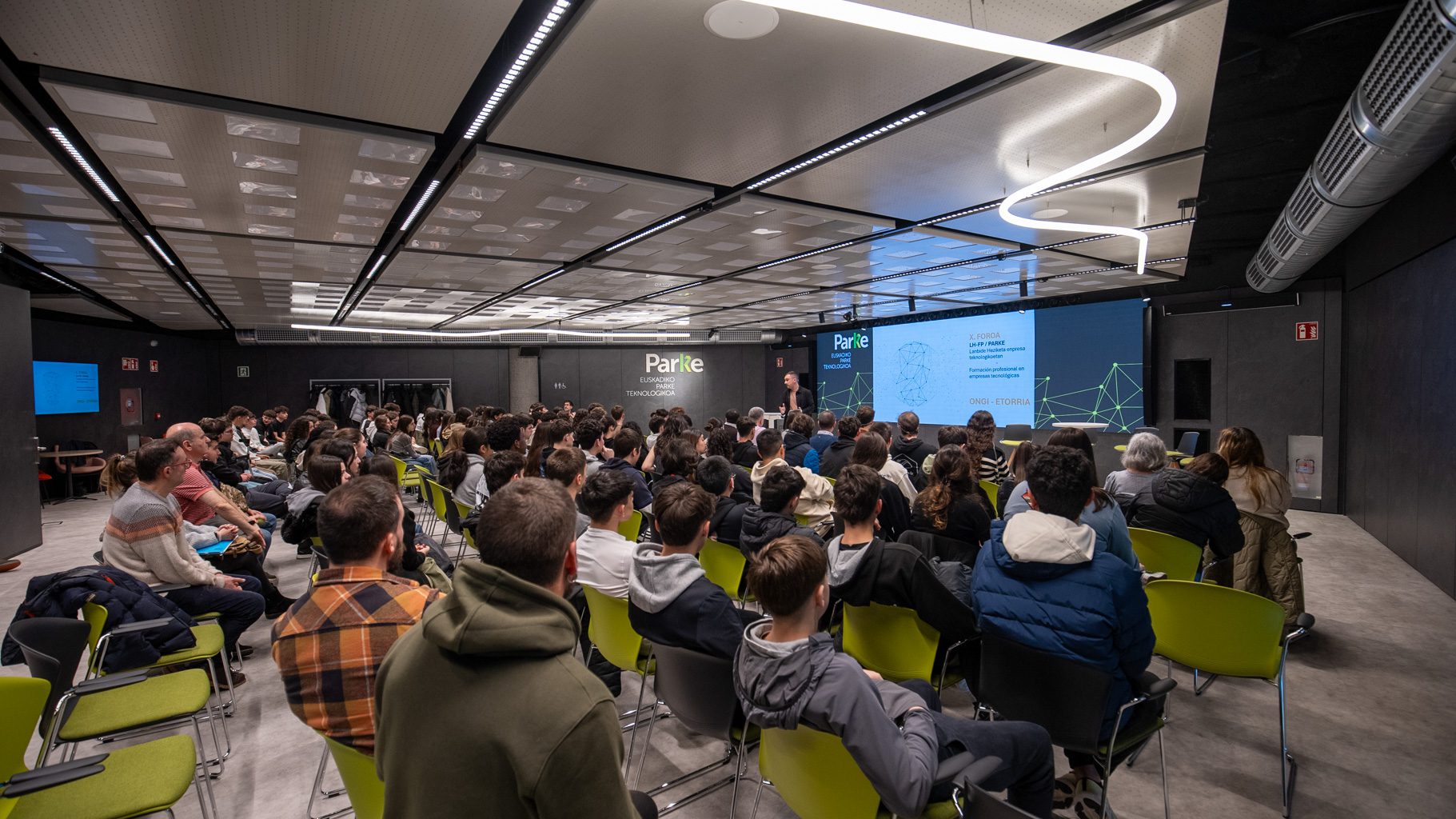Spanish science and technology parks showcase their testing infrastructures at the 6th Industry and SME Congress
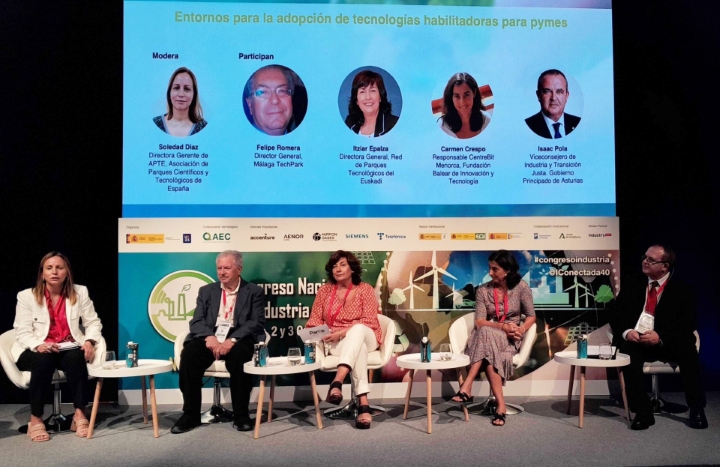
The Association of Science and Technology Parks of Spain (APTE) and the Spanish Technological Platform for Disruptive Technologies (DISRUPTIVE) participated in the sixth edition of the National Congress of Industry and SMEs organised by the Ministry of Industry, Trade and Tourism on 2 and 3 October at the Trade Fair and Congress Centre of Malaga (FYCMA).
 Under the slogan “Net Zero: the industry of the future”, this edition not only explored Industry 4.0, but also the crucial challenges affecting industry in general and Spanish SMEs. These challenges include decarbonisation, artificial intelligence, industrial and technological sovereignty, as well as attracting talent.
Under the slogan “Net Zero: the industry of the future”, this edition not only explored Industry 4.0, but also the crucial challenges affecting industry in general and Spanish SMEs. These challenges include decarbonisation, artificial intelligence, industrial and technological sovereignty, as well as attracting talent.
Spanish science and technology parks participated in the panel of presentations on the first day of the congress in the vertical “Enabling Technologies Forum” with a round table moderated by Soledad Díaz, managing director of APTE and head of the technical secretariat of DISRUPTIVE, which addressed the role of the parks in the adoption of enabling technologies for SMEs thanks to the experimentation and testing centres they have. The debate was attended by Felipe Romera, CEO of Málaga TechPark; Carmen Crespo, head of the Centre Bit Menorca of the Balearic Technological Innovation Park (ParcBit); Isaac Pola, Deputy Minister of Industry and Just Transition of the Principality of Asturias on behalf of the Technology Park of Asturias; and Itziar Epalza, Director General of the Technology Park of Euskadi.
Felipe Romera began the round of speeches by explaining that Malaga TechPark, due to its size and characteristics similar to a city, has testing infrastructures for technologies that need these conditions, such as the Dekra connected car test track. However, he also highlighted other infrastructures that form part of the ICTS network (Singular Scientific and Technological Infrastructures), specifically the Andalusian Centre for Nanomedicine and Biotechnology (Bionand) belonging to the Integrated Infrastructure for the production and characterisation of nanomaterials, biomaterials and systems in Biomedicine (NANBIOSIS) and the Picasso Node of the Spanish Supercomputing Network (RES).
For her part, Itziar Epalza commented that the Euskadi Technology Park is home to the advanced manufacturing centres in aeronautics (CFAA), energy (EIC) and wind energy (WINDBOX), which are tackling the challenges of the future in their respective sectors from their sites. In this regard, he specified that the CFAA promotes advanced manufacturing technologies at levels of development that are rapidly transferable to our industrial fabric oriented towards this key sector of the economy. With regard to the EIC, he stressed that they aspire to it being a tool for boosting competitiveness and contributing to the international leadership of companies in the Basque energy sector. Finally, with regard to WINDBOX, he pointed out that it contributes to improving the technological and international competitive positioning of suppliers of subsystems and products for the wind energy sector.
In the case of the Asturias Technology Park, Isaac Pola explained that they focus on the field of energy transition models, and innovation and technology transfers linked to industrial value chains associated with renewable energies; thus, their main demonstration areas are those of efficient public lighting systems, monitoring of solar tracking systems for photovoltaic plants, installation of photovoltaic solar energy for recharging electric vehicles, installation of shared self-consumption, autonomous vehicles in open traffic, and two hubs: Asturias Mobility Innovation Hub (AsMIH), related to electric mobility, and Asturias Paradise Hub 4 Circularity (AsPH4C).
The case of the Balearic Islands is an additional challenge, as they have an almost non-existent industry and from the Balearic Technological Innovation Park and, specifically, from its headquarters in Menorca, Carmen Crespo, detailed how they are working to help begin to develop and evolve that industry. She explained that they are having the most success in the field of training because they are working with vocational training schools to introduce these technologies into their students’ subjects and they are also training trainers. He also explained that they are already starting to work on prototypes thanks to their FabLab.
During this round table, the importance of science and technology parks having experimentation and testing infrastructures that contribute to improving the quality and competitiveness of the products, services and technologies developed by their SMEs was highlighted, as well as facilitating the adoption of enabling and disruptive technologies by these companies. In this regard, the moderator highlighted that 58% of the distributed Singular Scientific and Technical Infrastructures (ICTS) are present in Spanish science and technology parks, which coexist with other demonstration centres, fablabs, laboratories, prototyping, experimentation, testing and sandboxes spaces that are contributing to the development of the industrial sector of the future in our country.
